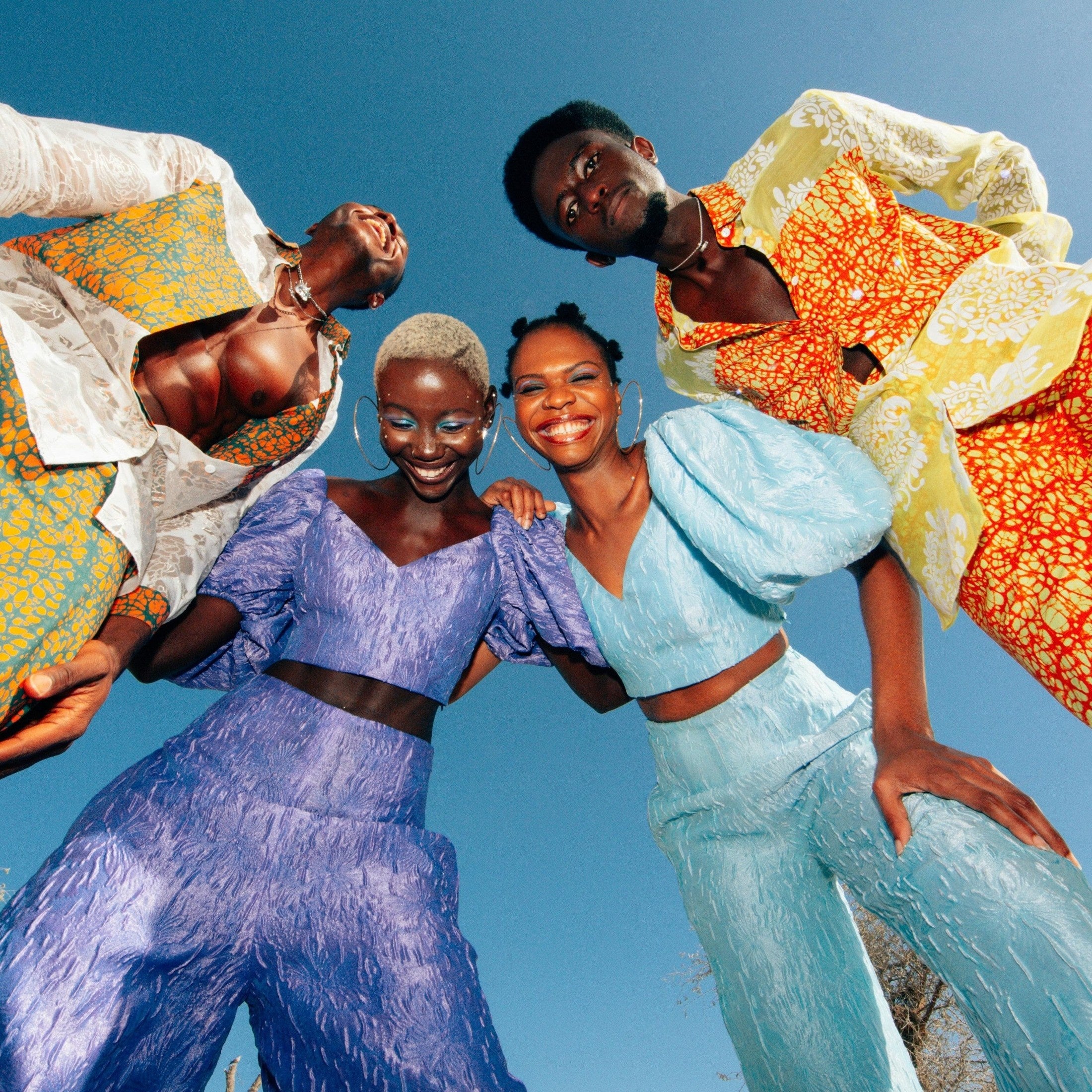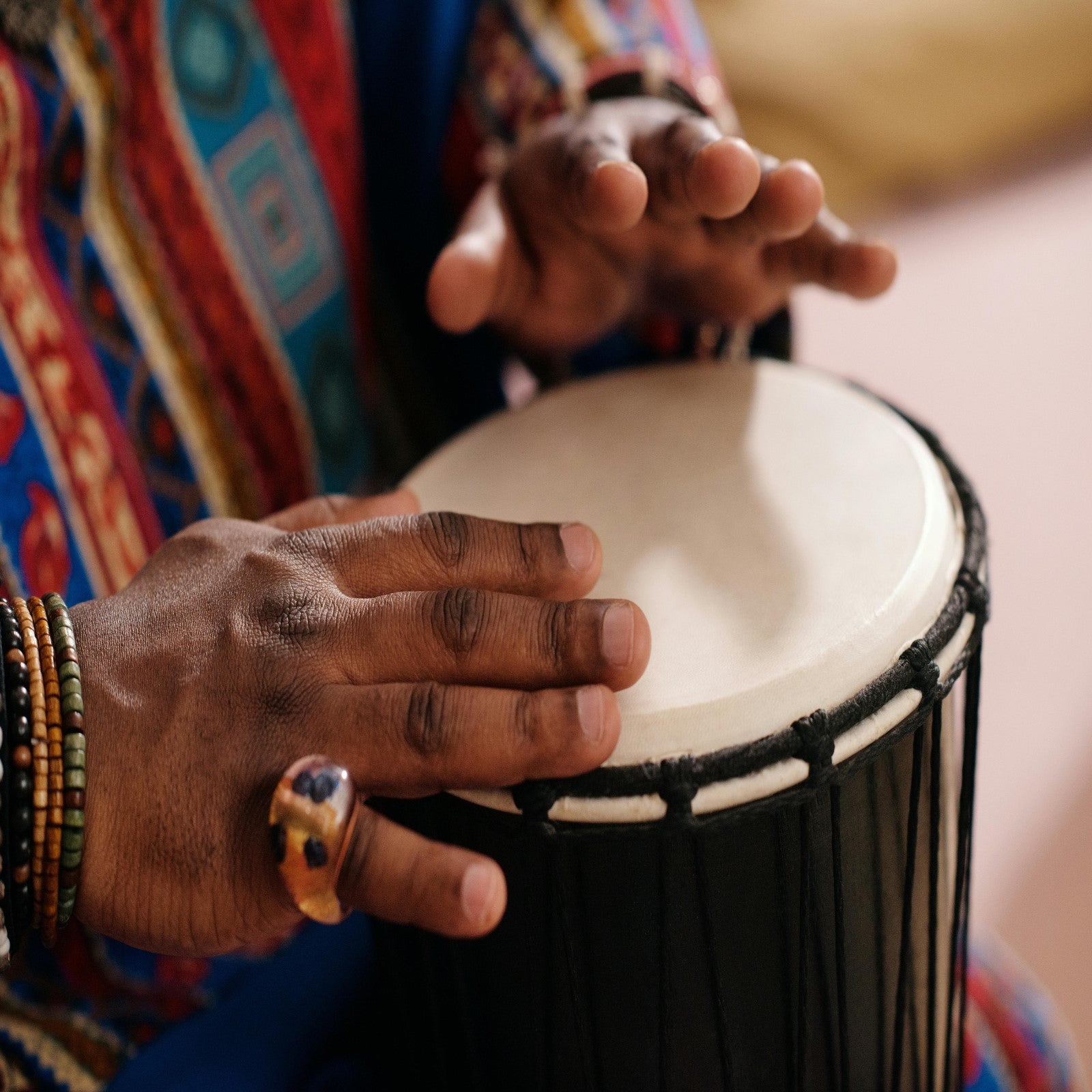
African Inspired Clothing
Celebrating African-Inspired Clothing: A Blend of Tradition and Modernity
African-inspired clothing is more than just fabric and patterns; it’s a vibrant tapestry of culture, history, and identity. Rooted in centuries of tradition, yet continuously evolving, African fashion showcases the richness and diversity of the continent's heritage. Let’s explore the beauty and significance of African-inspired clothing, its key elements, and how it seamlessly blends tradition with modernity – and of course, some Jetroe pieces that have all of the above!
The Rich Tapestry of African Fashion
African fashion is a reflection of the continent’s vast cultural diversity (that’s right – it’s not all the same!). Each region, country, and even community has its own unique style, influenced by historical events, local traditions, and social changes. Here are some common key elements that define African-inspired clothing:
- Vibrant Colors: African clothing is known for its bold and vibrant colors. These colors often have symbolic meanings; for example, red can symbolize wealth and vitality, while green represents the land and agriculture.
- Intricate Patterns: Patterns and motifs are integral to African fabrics. They often tell stories or convey messages. Adinkra symbols from Ghana, for example, each carry specific meanings, such as wisdom, strength, or unity.
- Natural Materials: Traditional African clothing typically uses natural materials like cotton, silk, and wool. These materials are comfortable and suitable for the continent’s diverse climates.
- Handcrafted Techniques: Many African textiles are handmade using techniques passed down through generations. These include weaving, dyeing, and embroidery, each requiring a high level of craftsmanship.
Popular African-Inspired Clothing Styles
- Dashiki: Originating from West Africa, the dashiki is a colorful garment worn by men and women. It is known for its loose fit, intricate embroidery, and vibrant patterns. The dashiki is both comfortable and stylish, making it a popular choice for various occasions. Our Round Neck Dashiki Sleeveless Maxi Dress is a perfect example!
- Shweshwe: Originating from South Africa, Shweshwe is a printed cotton fabric known for its intricate designs and indigo color. It is used to make dresses, skirts, and traditional attire for special occasions.
- Kente Cloth: Kente is a type of silk and cotton fabric made of interwoven cloth strips, originating from the Akan people of Ghana. It is characterized by its bright colors and geometric patterns. Check out our Kente-inspired blouse here! Kente cloth is often worn during significant ceremonies and celebrations.
- Boubou: The boubou is a flowing, wide-sleeved robe worn in West Africa. It is often made from richly embroidered fabrics and is traditionally worn for formal occasions. The boubou’s elegance and comfort have made it a timeless piece in African fashion.
- Ankara: Also known as African wax print fabric, Ankara is famous for its colorful designs and versatility. It can be used to create dresses, skirts, shirts, and even accessories. The fabric is affordable and widely available, making it a favorite in African fashion. Shop Jetroe has a variety of Ankara-inspired pieces, such as our Ankara Print Midi Dress with Lotus Sleeves.
The Fusion of Tradition and Modernity
African fashion is not confined to traditional styles; it continuously evolves, blending the old with the new. Modern African designers are redefining fashion by incorporating traditional elements into contemporary designs. This fusion has given rise to unique and innovative styles that appeal to a global audience.
- Runway Influence: African-inspired designs have made a significant impact on international runways. Designers like Ozwald Boateng, Duro Olowu, and Lisa Folawiyo have gained global recognition for their ability to blend traditional African aesthetics with modern fashion.
- Everyday Wear: African prints and fabrics are increasingly being incorporated into everyday wear. From casual dresses to office attire, these designs offer a fresh and vibrant alternative to conventional fashion.
- Cultural Representation: Modern African fashion celebrates cultural representation and identity. By wearing African-inspired clothing, you can express your heritage and pride while promoting cultural awareness and appreciation!
The Impact of African Fashion on Global Trends
African fashion has significantly influenced global fashion trends. The bold colors, unique patterns, and handcrafted techniques have inspired designers worldwide. Celebrities and fashion icons often showcase African-inspired pieces, further popularizing these styles on a global scale.
- Sustainability: The use of natural materials and traditional crafting techniques aligns with the growing global trend toward sustainable and ethical fashion. African-inspired clothing promotes eco-friendly practices and supports local artisans, just like Shop Jetroe!
- Diversity and Inclusion: African fashion brings diversity and inclusivity to the global fashion scene. It highlights the importance of cultural representation and offers a platform for marginalized communities to showcase their heritage.
- Innovation: The fusion of traditional and modern elements in African fashion drives innovation. Designers continuously explore new ways to reinterpret traditional styles, creating cutting-edge designs that appeal to a wide audience.
Embracing African-Inspired Clothing
Whether you’re looking to celebrate your heritage or simply appreciate the beauty of African fashion, there are many ways to incorporate African-inspired clothing into your wardrobe:
- Start with Accessories: Incorporate African prints and fabrics through accessories like headwraps, scarves, and jewelry. These pieces can add a pop of color and cultural flair to any outfit.
- Mix and Match: Combine African-inspired pieces with your everyday wardrobe. Pair an Ankara skirt with a simple blouse or wear a dashiki top with jeans for a stylish and unique look.
- Support Local Artisans: When purchasing African-inspired clothing, consider buying from local artisans and ethical brands. This supports traditional craftsmanship and promotes sustainable fashion practices.
- Experiment with Styles: Don’t be afraid to experiment with different styles and patterns! African fashion offers a wide range of options, so explore and find what resonates with your personal style. Be creative, and have fun!
African-inspired clothing is a celebration of culture, history, and identity. Its vibrant colors, intricate patterns, and handcrafted techniques make it a unique and valuable part of the global fashion landscape. By embracing African fashion, we not only appreciate its beauty but also honor the rich heritage and craftsmanship behind each piece. Whether through traditional attire or modern designs, African-inspired clothing offers a powerful way to express individuality and cultural pride.



Leave a comment
This site is protected by hCaptcha and the hCaptcha Privacy Policy and Terms of Service apply.